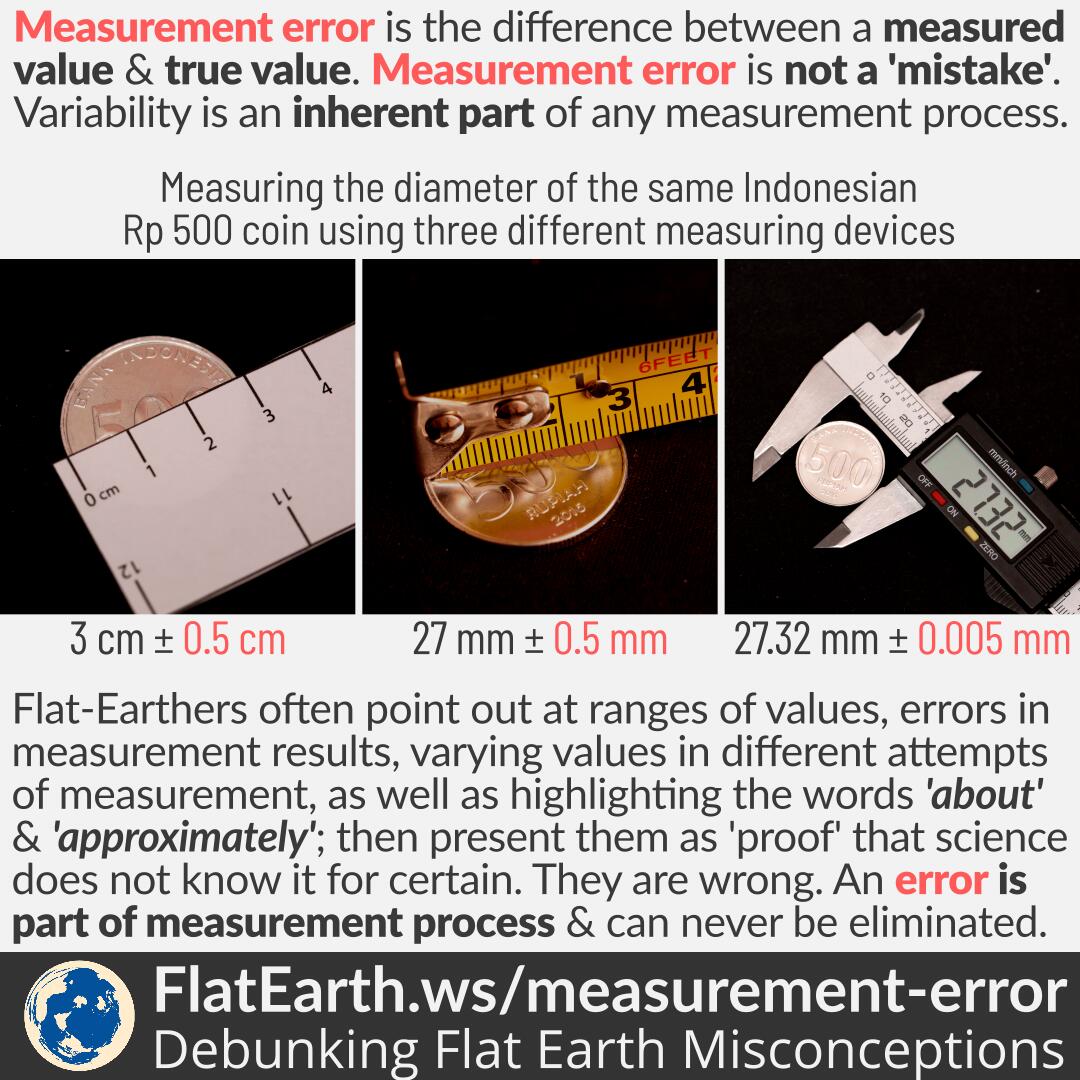Measurement error (also called observational error) is the difference between a measured quantity and its true value. A measurement error is not a mistake. Variability is an inherent part of the results of measurements and the measurement process.
Flat-Earthers often point out at ranges of quantities, errors in measurement results, varying results in different attempts of measurement, as well as highlighting the adjectives ‘about’ and ‘approximately’; then present them as ‘proof’ that science does not know it for certain. They are wrong. Any measurement has an error, and it can never be eliminated.
The distance to the sun, stars, and other celestial objects are frequently made at issue by flat-Earthers. They would seek and compare historical or different results of measurements. If they find a ‘discrepancy,’ they would highlight the facts and proclaim that science is lying or does not know it for sure.
In reality, technology is always improving. The current results of measurement are far more accurate & more precise compared to the technology of 20 centuries ago. It is not reasonable to expect those were living 20 centuries ago to have the same quality of results of today.
It does not have to involve intricate measurements inaccessible to regular people. All everyday measurements will always give us a measurement error. There are more precise instruments that provide us smaller errors. But no matter how precise or accurate, all measurement will always have errors.
References
- Observational error – Wikipedia
- Measurement error – Statistics Howto


